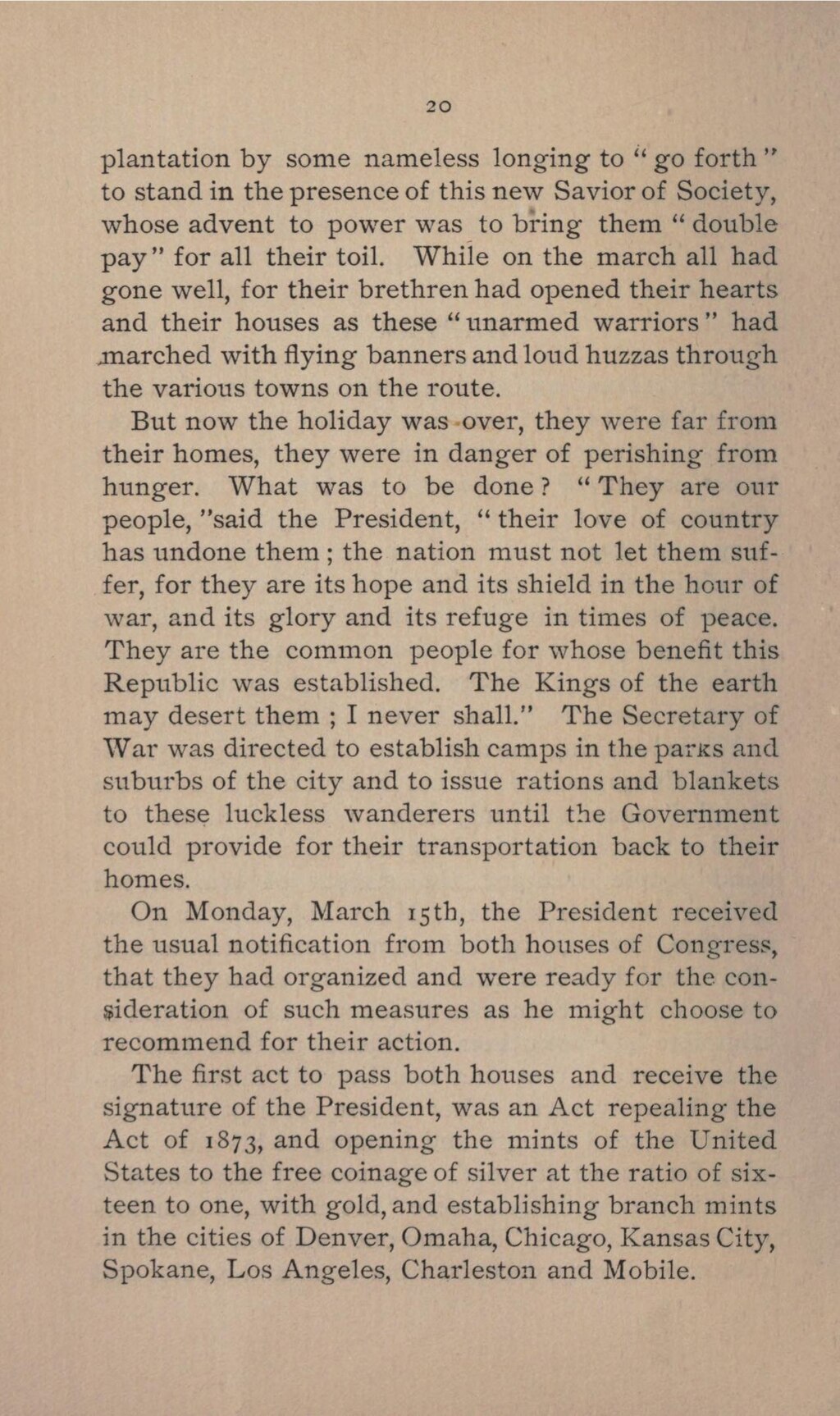20
plantation by some nameless longing to "go forth" to stand in the presence of this new Savior of Society, whose advent to power was to bring them "double pay" for all their toil. While on the march all had gone well, for their brethren had opened their hearts and their houses as these "unarmed warriors" had marched with flying banners and loud huzzas through the various towns on the route.
But now the holiday was over, they were far from their homes, they were in danger of perishing from hunger. What was to be done? "They are our people," said the President, "their love of country has undone them; the nation must not let them suffer, for they are its hope and its shield in the hour of war, and its glory and its refuge in times of peace. They are the common people for whose benefit this Republic was established. The Kings of the earth may desert them; I never shall." The Secretary of War was directed to establish camps in the parks and suburbs of the city and to issue rations and blankets to these luckless wanderers until the Government could provide for their transportation back to their homes.
On Monday, March 15th, the President received the usual notification from both houses of Congress, that they had organized and were ready for the consideration of such measures as he might choose to recommend for their action.
The first act to pass both houses and receive the signature of the President, was an Act repealing the Act of 1873, and opening the mints of the United States to the free coinage of silver at the ratio of sixteen to one, with gold, and establishing branch mints in the cities of Denver, Omaha, Chicago, Kansas City, Spokane, Los Angeles, Charleston and Mobile.
